If you’ve been noticing that the tone of online messages seems more negative than it used to be, you’re not imagining it. And, worse, it’s greatly affecting our children.
When we teach our kids how to be kind online, we not only stop the spread of negativity on the Internet; we actively promote good citizenship – something that can help protect our children from Internet bullying.
Disclosure: As a member of the Forward Influence Network, I am being compensated by the sponsor for this post.
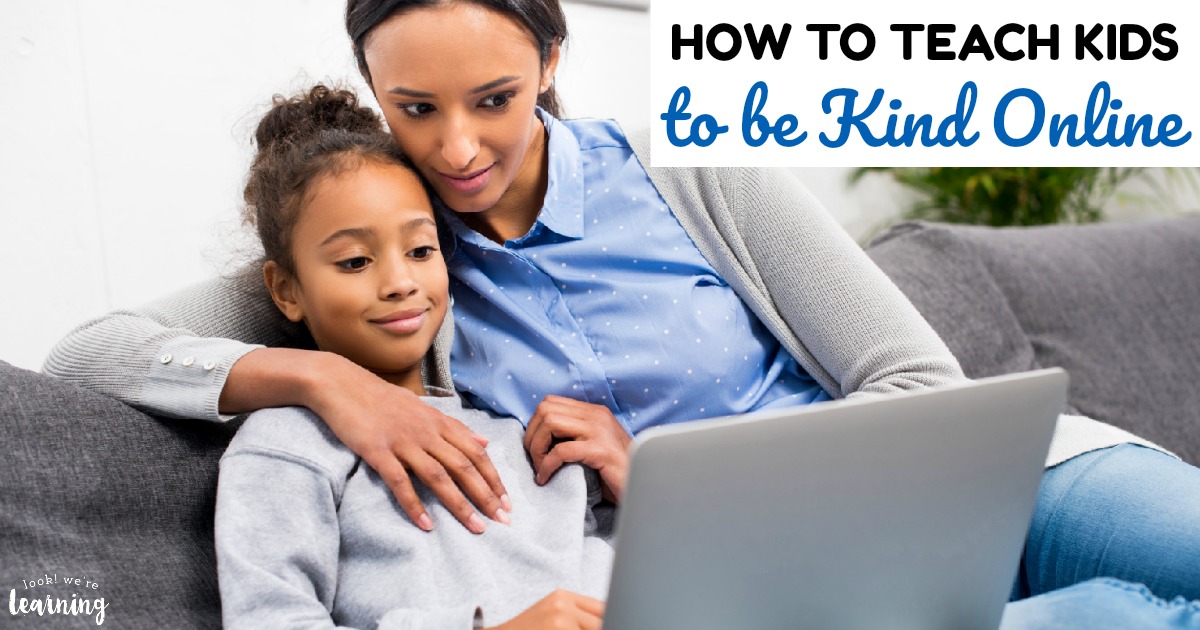
Is bullying a real problem for our kids? Absolutely.
According to the latest figures, 28% of students have been bullied and 71% have seen bullying happen, including online.
The best way to prevent bullying and equip our kids on how to handle it is to teach them about kindness at home. When we show them how to be good citizens (in real life and online), we can help stop bullying in its tracks.
And that’s why I’m excited to share three ways to teach kids to be kind online and to introduce a brand new (and free!) program to help parents and teachers equip children against Internet bullying.
Take a look at how this curriculum can help kids become good online citizens!
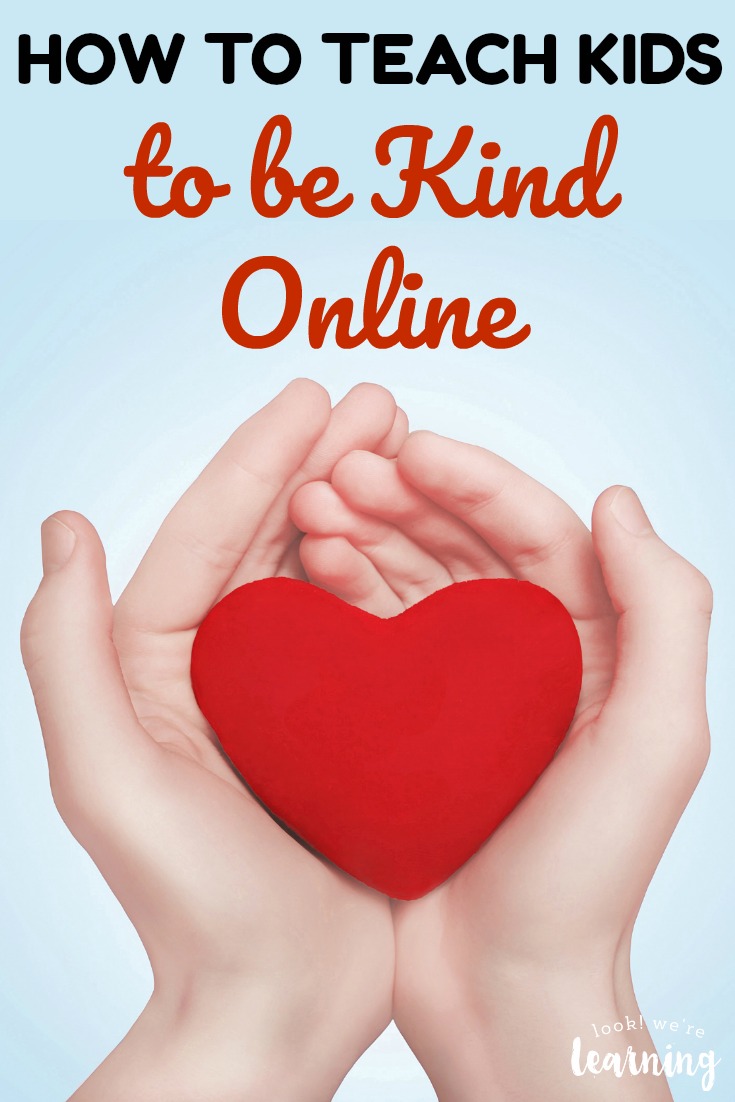
Images c/o: AllaSerebrina & Guas / depositphotos
3 Ways to Teach Kids to Be Kind Online
Model kindness for the kids to see.
We can’t expect children to be kind online if they don’t see us behaving with kindness on the Internet or in real life. Let them see you comment positively on a news story.
Talk about the events and people you interact with in a positive manner. Try to avoid talking about negative online reports when possible.
Another way to model kindness is to teach children about how to be “Upstanders”. Since so many children witness bullying, it’s important for them to learn what to do when they see it.
Becoming an “Upstander” – someone who stands up for peers who are being bullied – can do a lot to stop bullying when it happens.
Talk with your children about how they can safely come to the aid of a classmate or friend who is being bullied. Try a few role-playing scenarios to help them brainstorm how to get the help of a responsible adult or other peers as well.
Encourage them to visit positive and uplifting media sources.
Many Internet bullies hang out around negative or viral media sources. To encourage kids to think positively, show them how to find uplifting media sources and talk about what they see there.
When we give our children positive things to think about, we make it easier for them to spot bullying when they see it and respond in a kind and appropriate manner.
Show them how to be thoughtful online.
An especially helpful resource for modeling kindness online is Be Internet Awesome, a comprehensive curriculum from Google that helps educators and parents show students how to be good Internet citizens. This program features plenty of class activities you can use with kids at school or home that encourage kind words and acts, even on the Internet.
Want to make learning about Internet kindness fun? Let the kids play Interland, where they can make their way through Kind Kingdom, a virtual environment that shows them how to make thoughtful decisions when interacting with others.
Social Media Notes of Kindness
A simple way to be kind online is to be complimentary. If your children are allowed to use social media, let them download a few of these kindness notes to share with their friends!
Sending a quick note of kindness can do a lot to spread positivity. Plus, your children’s friends can share them too!
Just right-click and download each image to save it to your computer.





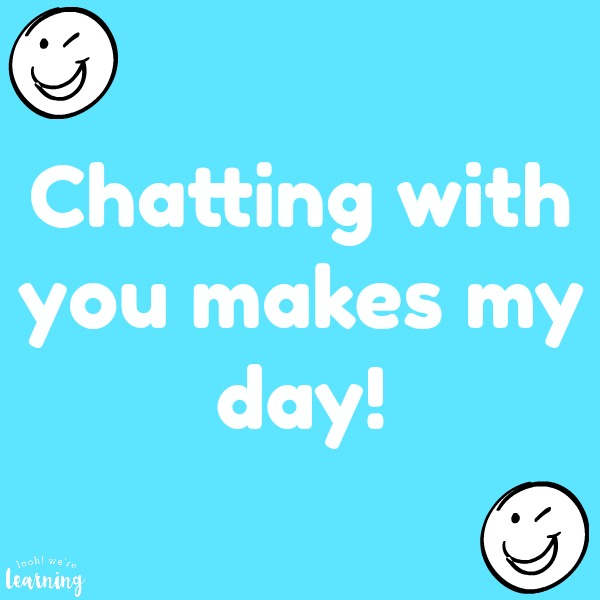
Looking for more ways to connect with your kids?
And get more tips for raising a happy family on my Parenting with Joy Pinterest board!

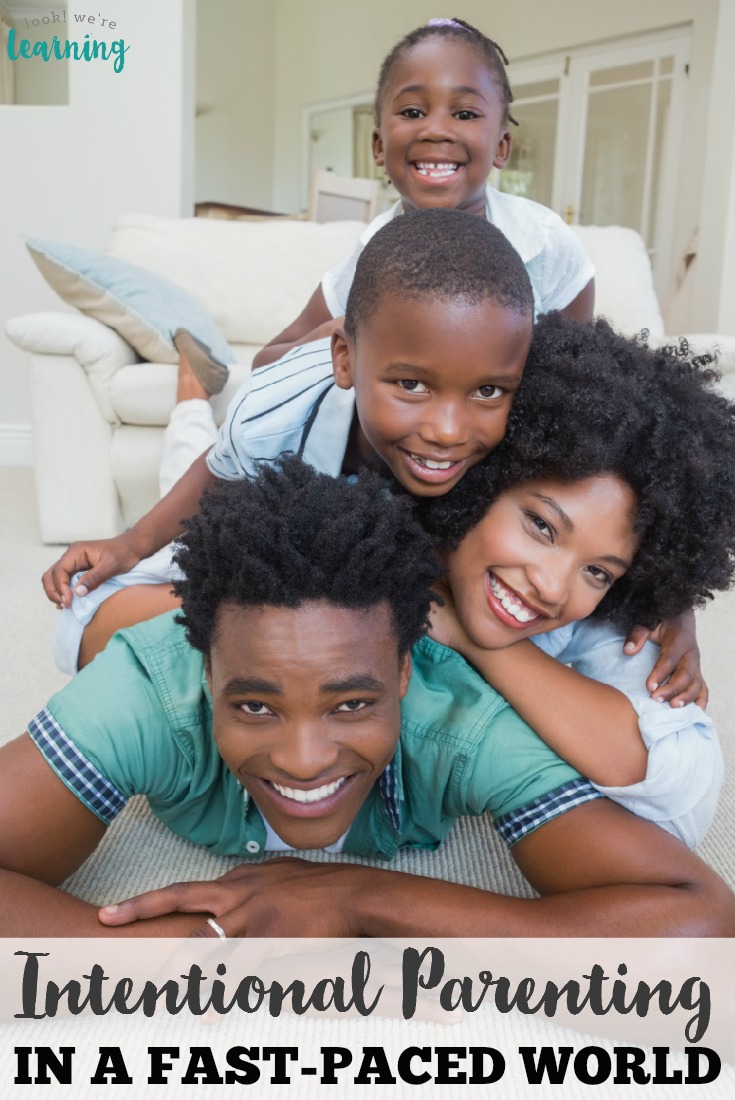
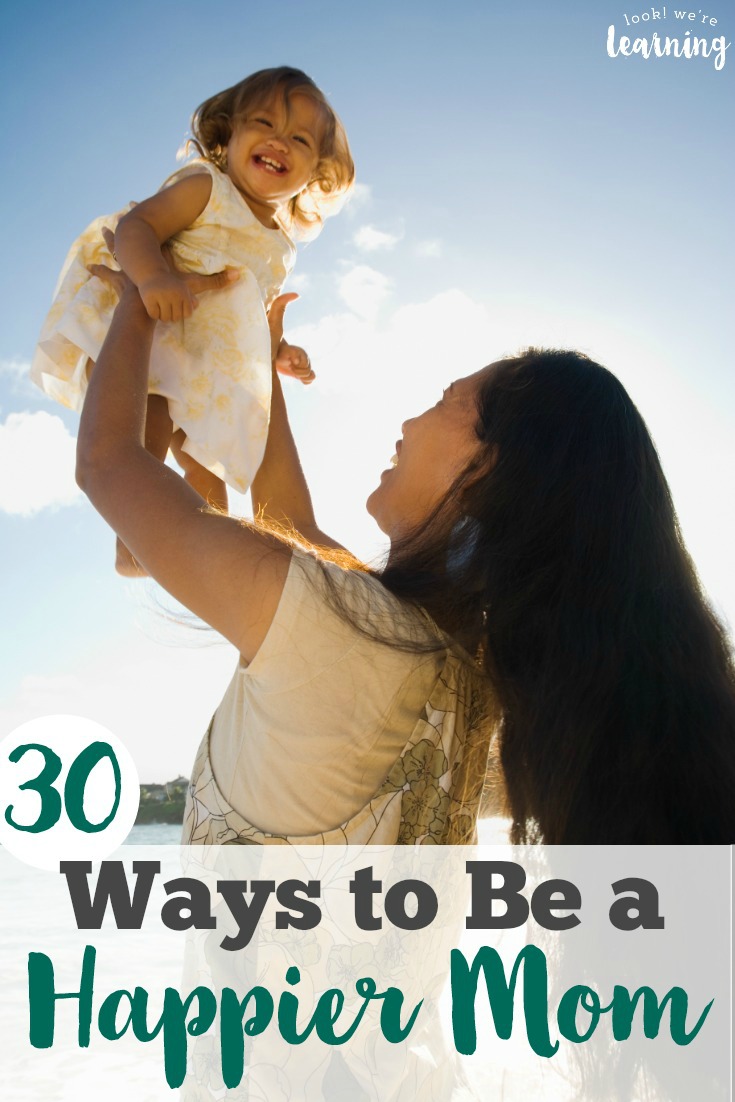
Showing empathy online is much more difficult. That’s why there is so much aggression and bullying online.
I also think that it is incredibly important not only to protect the child from the negative influence of online communication but to teach him not to be exposed to this negative influence. So that he is someone who brings positivity and kindness, not negativity.
I myself sometimes find it hard to be restrained and polite with some people. And I don’t want my child to experience that.